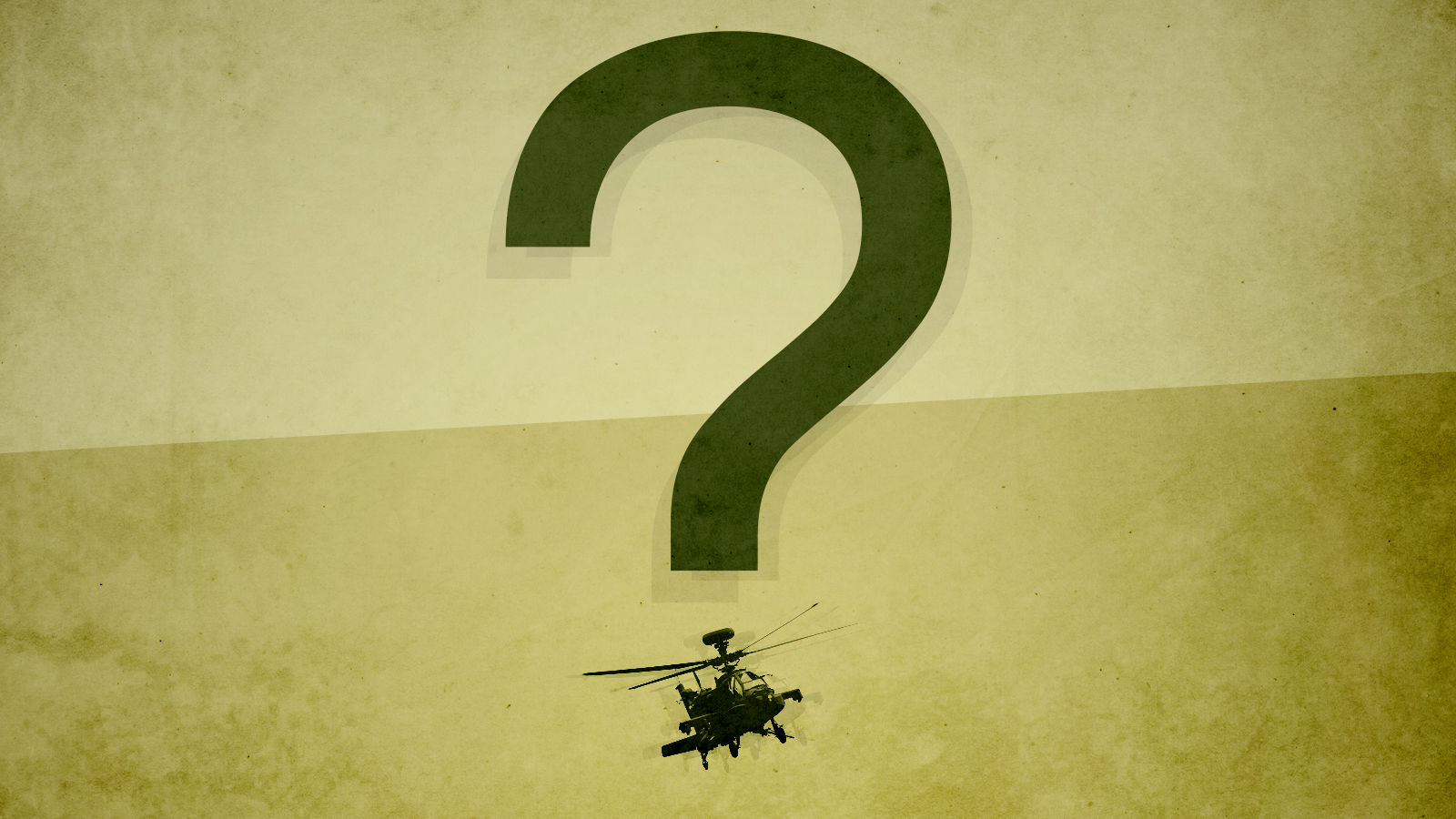America's 3 big 'what ifs' in Afghanistan


A free daily email with the biggest news stories of the day – and the best features from TheWeek.com
You are now subscribed
Your newsletter sign-up was successful
Is it possible to approach the end of a 20-year war without asking "what if"? I suspect not — at least, not when the drawdown is as chaotic and controversial as the past few weeks in Afghanistan have been. Here are three such hypotheticals that caught my eye.
What if we'd never invaded? At The Atlantic, pastor and Poor People's Campaign chair William J. Barber II reminded his readers that the call to invade wasn't unanimous. Rep. Barbara Lee (D-Calif.) "stood alone, the only member of Congress to vote against giving President George W. Bush the authority to wage unlimited war in the name of stopping terrorism." Lee's vote was not enough to forestall, in Barber's phrase, the U.S. going "to war to respond to a crime." But what if her view had prevailed?
What if we'd gotten bin Laden immediately? This second question comes from former Bush speechwriter David Frum at DefenseOne. "Had the United States caught and killed Osama bin Laden in December 2001, the U.S. military presence in Afghanistan would have faded away almost immediately afterward," Frum postulates. "I cannot prove that," he concedes, but from his vantage as a member of the Bush administration at that time, Frum suggests the war in Afghanistan would have ended, the nation-building projects never would have begun, and the war in Iraq may even have been forestalled had the al Qaeda leader been caught or killed right away.
The Week
Escape your echo chamber. Get the facts behind the news, plus analysis from multiple perspectives.

Sign up for The Week's Free Newsletters
From our morning news briefing to a weekly Good News Newsletter, get the best of The Week delivered directly to your inbox.
From our morning news briefing to a weekly Good News Newsletter, get the best of The Week delivered directly to your inbox.
What if we'd accepted the Taliban's plea for peace in 2001? "Did the war in Afghanistan have to happen?" wonders the headline of a Monday report by New York Times Baghdad Bureau chief Alissa L. Rubin. As explored in this article, "the war" means everything after the initial invasion and swift rout of the Taliban. "It was in the waning days of November 2001 that Taliban leaders began to reach out to Hamid Karzai, who would soon become the interim president of Afghanistan: They wanted to make a deal," Rubin writes. Though the Taliban's sole demand was amnesty, then-Secretary of Defense Donald H. Rumsfeld categorically refused to deal.
What if he hadn't? Or what if bin Laden had been found in 2001? Or what if we'd responded with a police action instead of a military intervention? These are fascinating and tantalizing questions — and impotent, too, except perhaps to bring greater wisdom to the aftermath of tragedies yet to come.
A free daily email with the biggest news stories of the day – and the best features from TheWeek.com
Bonnie Kristian was a deputy editor and acting editor-in-chief of TheWeek.com. She is a columnist at Christianity Today and author of Untrustworthy: The Knowledge Crisis Breaking Our Brains, Polluting Our Politics, and Corrupting Christian Community (forthcoming 2022) and A Flexible Faith: Rethinking What It Means to Follow Jesus Today (2018). Her writing has also appeared at Time Magazine, CNN, USA Today, Newsweek, the Los Angeles Times, and The American Conservative, among other outlets.
-
 What to know before filing your own taxes for the first time
What to know before filing your own taxes for the first timethe explainer Tackle this financial milestone with confidence
-
 The biggest box office flops of the 21st century
The biggest box office flops of the 21st centuryin depth Unnecessary remakes and turgid, expensive CGI-fests highlight this list of these most notorious box-office losers
-
 What are the best investments for beginners?
What are the best investments for beginners?The Explainer Stocks and ETFs and bonds, oh my
-
 Big-time money squabbles: the conflict over California’s proposed billionaire tax
Big-time money squabbles: the conflict over California’s proposed billionaire taxTalking Points Californians worth more than $1.1 billion would pay a one-time 5% tax
-
 Did Alex Pretti’s killing open a GOP rift on guns?
Did Alex Pretti’s killing open a GOP rift on guns?Talking Points Second Amendment groups push back on the White House narrative
-
 Washington grapples with ICE’s growing footprint — and future
Washington grapples with ICE’s growing footprint — and futureTALKING POINTS The deadly provocations of federal officers in Minnesota have put ICE back in the national spotlight
-
 Trump’s Greenland ambitions push NATO to the edge
Trump’s Greenland ambitions push NATO to the edgeTalking Points The military alliance is facing its worst-ever crisis
-
 Why is Trump threatening defense firms?
Why is Trump threatening defense firms?Talking Points CEO pay and stock buybacks will be restricted
-
 The billionaires’ wealth tax: a catastrophe for California?
The billionaires’ wealth tax: a catastrophe for California?Talking Point Peter Thiel and Larry Page preparing to change state residency
-
 Trump considers giving Ukraine a security guarantee
Trump considers giving Ukraine a security guaranteeTalking Points Zelenskyy says it is a requirement for peace. Will Putin go along?
-
 Bari Weiss’ ‘60 Minutes’ scandal is about more than one report
Bari Weiss’ ‘60 Minutes’ scandal is about more than one reportIN THE SPOTLIGHT By blocking an approved segment on a controversial prison holding US deportees in El Salvador, the editor-in-chief of CBS News has become the main story
